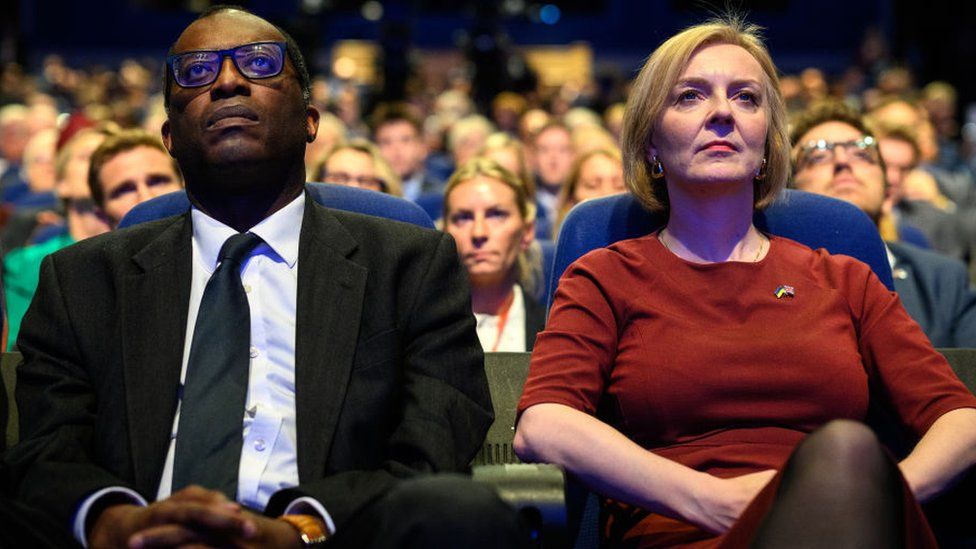-

-
-
Loading

Loading

The term "mini budget" has become a stain on British politics due to the disastrous statement made by then-Chancellor Kwasi Kwarteng in September 2022. The statement included unfunded tax cuts of £45bn, which had a severe impact on the country's economy and politics. Conversations with key players before and after the statement have revealed new details about Kwarteng and then-Prime Minister Liz Truss' "growth plan." In the aftermath, top officials were questioned about how Britain had affected the financial markets. Kwarteng had to reassure US bankers, politicians, and diplomats about the UK's commitment to fiscal responsibility. Truss was forced to take drastic action, including a U-turn on a corporation tax cut, due to the Bank of England's decision to cease emergency purchases of government bonds. The Bank's Governor, Andrew Bailey, claims this was meant to ensure financial stability, but Truss believes they pressured her to reverse tax decisions. Truss also felt pressured by the Office for Budget Responsibility (OBR), not realizing their level of power. The OBR was bypassed in the plan by Truss and Kwarteng, who refused to publish their updated forecast alongside the mini-budget. This lack of transparency affected market confidence. The government tried to fill the budget gap by theorizing how the economy could grow faster, but this did not convince the market. The crisis in the pensions system worsened the situation, as pension funds had to sell more government bonds, leading to their value decreasing. Truss's team blamed the Bank of England for this crisis and accused them of not providing sufficient warnings. The government's attempts to defend itself by blaming global factors only added to its credibility issues. Last year's events served as a stress test for Britain's system of institutions and changed the direction of economic policy, investor behavior, and institutional responses. The UK's reliance on foreign funding was shaken. The mini-budget's impact had political consequences as well, with the term now associated with financial credibility, tight fiscal control, and a reduction in necessary investments. It has also influenced policies, such as the potential reduction of the HS2 project and a decrease in green investments. The OBR, Bank of England, and top Treasury civil servant Sir Tom Scholar faced backlash and were sidelined. Truss's push against economic orthodoxy reached its breaking point, and policy decisions are now based on the OBR's forecast. The era of radical economic experiments is over, and the experts have regained influence.